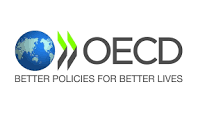The concept of student agency, as understood in the context of the OECD Learning Compass 2030, is rooted in the principle that students have the ability and the will to positively influence their own lives and the world around them. Student agency is thus defined as the capacity to set a goal, reflect and act responsibly to effect change.

It is about acting rather than being acted upon; shaping rather than being shaped; and making responsible decisions and choices rather than accepting those determined by others. When students are agents in their learning, that is, when they play an active role in deciding what and how they will learn, they tend to show greater motivation to learn and are more likely to define objectives for their learning. These students are also more likely to have “learned how to learn” – an invaluable skill that they can and will use throughout their lives. Co-agency is when teachers and students become co-creators in the teaching-and learning process.
Student agency for 2030. OECD Future of Education and Skills 2030 Conceptual learning framework.
